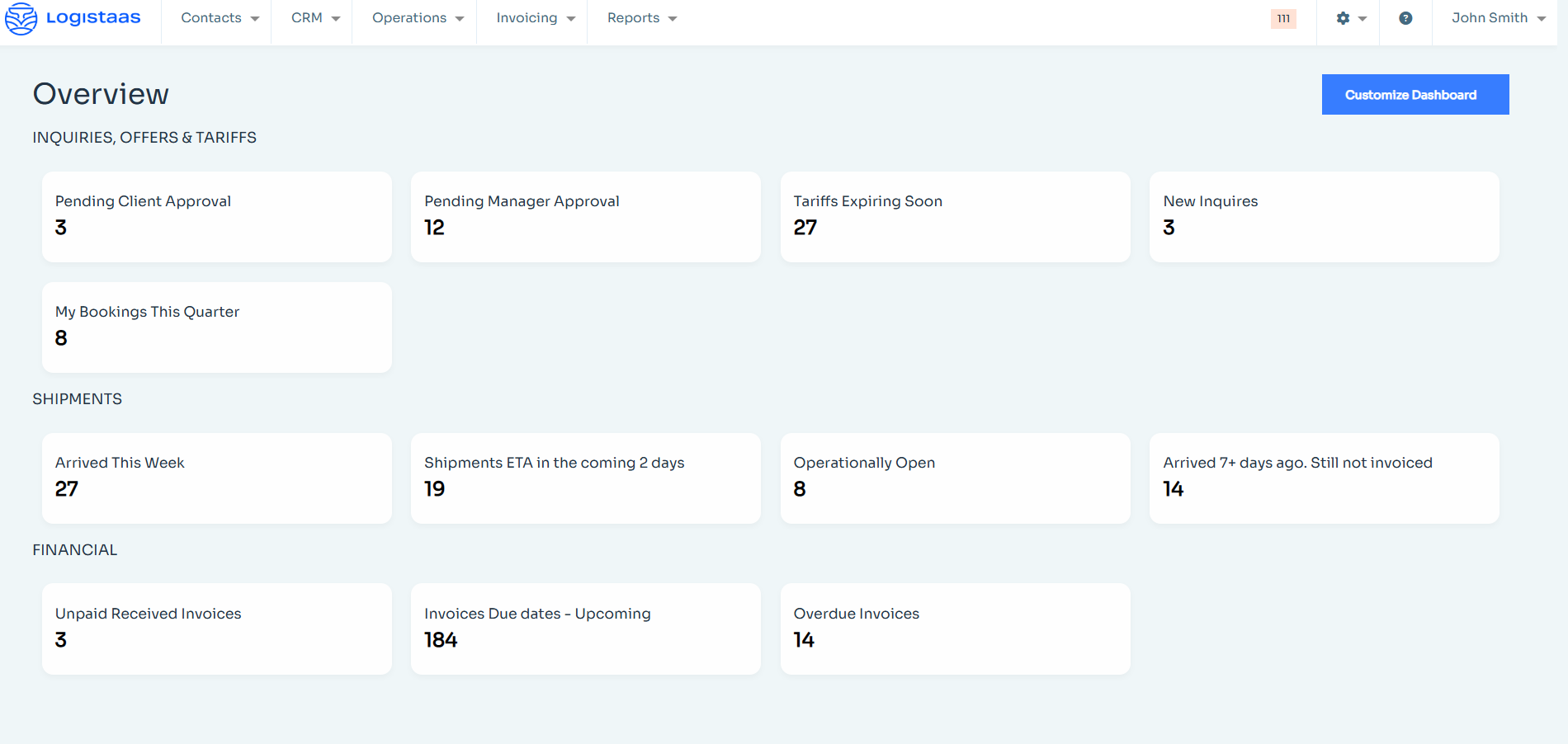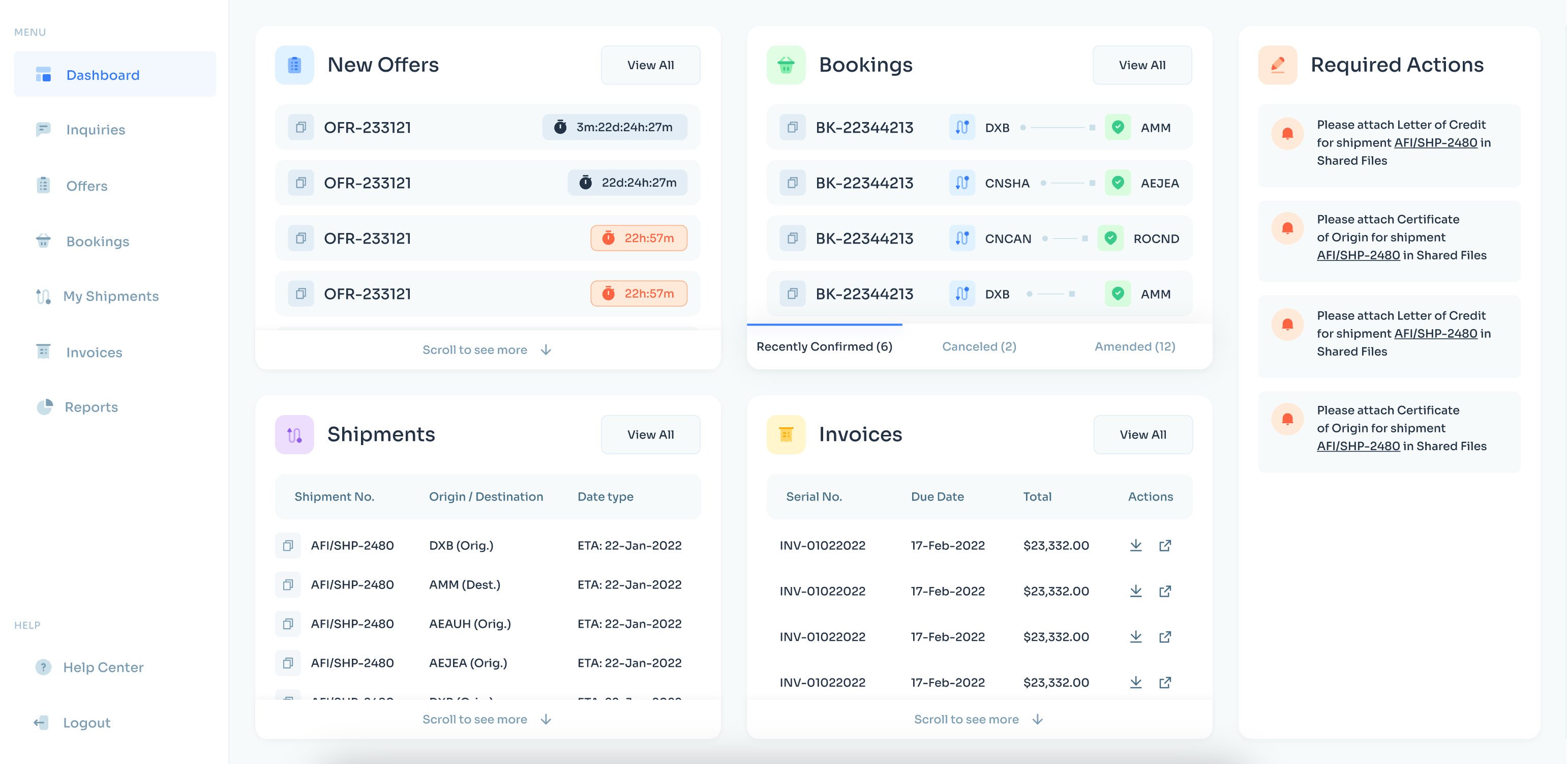How today’s top forwarders work faster, smarter, and with far less chaos.
If you work in freight, you already know: efficiency isn’t a perk, it’s the whole game. The freight industry moves at the speed of now, and the gap between an overwhelmed forwarder and a high-performing one usually comes down to a few core behaviors, including the ability to meet deadlines, respond swiftly, and maintain transparency throughout the process.
After supporting forwarders in more than 70 countries, we’ve identified the Habits of Highly Efficient Freight Forwarders, the ones that consistently scale, win customers, and reduce operational chaos. These forwarders demonstrate seasoned expertise, build strong partnerships, and often provide a single point of contact for clients to ensure effective communication and trust. They also focus on cost effectiveness by managing costs through efficient planning, route consolidation, and selecting the right transport mode to optimize both expenses and environmental impact.
Let’s break down the habits that separate the top 1% from everyone else.
Introduction to Freight Forwarding

Freight forwarding is the backbone of international shipping, connecting businesses to the world by ensuring their goods move smoothly across international borders. At its core, a freight forwarder acts as a vital link between shippers and carriers, expertly managing the logistics of transporting cargo by air freight, sea freight, or road freight. In today’s fast-paced global trade environment, the right freight forwarder is more than just a service provider, they’re a strategic partner who can be a game changer for your business.
Efficient freight forwarding is all about navigating complex customs procedures, preparing accurate commercial invoices and customs declarations, and ensuring customs clearance without costly delays. With ever-changing customs regulations and international trade requirements, businesses need a logistics partner with a deep understanding of the industry and a proven track record of compliance. The best freight forwarders offer tailored solutions, working closely with clients to understand their unique shipping requirements and proactively address potential issues before they become bottlenecks.
In the world of freight, technology is a key driver of efficiency. Today’s leading freight forwarders leverage real-time tracking, electronic data interchange (EDI), and centralized communication platforms to provide clients with up-to-the-minute shipment details and competitive pricing. This digital approach not only streamlines logistics but also enhances transparency, allowing businesses to monitor their supply chain and avoid costly delays.
Strong relationships with carriers and customs authorities are another hallmark of a reputable freight forwarder. These connections enable forwarders to secure competitive rates, ensure timely deliveries, and handle everything from hazardous materials to oversized cargo with confidence. Financial stability and a commitment to continuous improvement are non-negotiable traits, ensuring that your logistics partner can support your business as it grows and adapts to new challenges.
Ultimately, choosing the right freight forwarder gives your business a competitive advantage. With a comprehensive suite of services, including logistics management, customs brokerage, and freight auditing, a seasoned freight forwarder helps you achieve cost savings, reduce delays, and improve customer satisfaction. Whether you’re shipping goods across continents or managing a complex supply chain, partnering with an experienced freight forwarder means you can focus on your core business, knowing your shipments are in expert hands.
In a world where every minute counts and every shipment matters, efficient freight forwarding is the key to success. By selecting a logistics partner with the expertise, resources, and commitment to deliver tailored solutions, you can navigate the complexities of international shipping with confidence—and take your business to the next level.
1. Automating Repetitive Tasks

One of the most important habits of highly efficient freight forwarders is eliminating manual repetition.
Tasks like:
Re-creating invoices
Copy-pasting shipment details
Manually updating customers
Checking container statuses across multiple websites
…aren’t just boring. They drain time, create bottlenecks, and open the door to mistakes.
Efficient forwarders understand this, which is why they automate everything they can.
2. Centralizing Communication

You can spot inefficient teams instantly: endless “any update?” emails, scattered WhatsApp messages, and information buried in someone’s inbox.
One of the hallmark habits of highly efficient freight forwarders is working from one centralized system where everyone sees the same updates, tasks, and shipment details.
Centralization ensures:
Nothing slips through the cracks
Team members always know the latest status
Clients receive consistent and confident updates
Communication becomes structured instead of reactive
This habit alone can transform how smoothly operations run.
3. Tracking KPIs Consistently

Efficient teams don’t rely on gut feeling, they rely on measurable performance.
By tracking KPIs consistently, forwarders can identify what’s slowing them down, what’s costing them money, and where they should focus their improvements.
This habit gives leaders the clarity they need to scale efficiently and predictably.
4. Simplifying Documentation

Documentation is unavoidable, but inefficiency is.
Another key habit of highly efficient freight forwarders is simplifying documentation workflows through:
Templates
Auto-generated documents
Centralized storage
Zero duplicate data entry
Fast sharing without manual back-and-forth
When documentation is smooth, everything else becomes smoother: invoicing, operations, compliance, audits, and customer updates.
Forwarders who simplify documentation gain hours back every single day.
5. Prioritizing Customer Visibility

Modern shippers expect transparency. They want live tracking, predictable timelines, and clear communication.
Forwarders who prioritize customer visibility:
Reduce inbound “status check” calls
Build stronger relationships
Increase customer retention
Close more business
Stand out from competitors
One of the most powerful habits of highly efficient freight forwarders is offering a branded customer portal where clients get real-time shipment visibility without chasing your team.
Visibility isn’t a luxury anymore, it’s part of your value proposition.
6. Using a TMS to Connect Everything
Here’s the truth:
You can’t consistently adopt the habits of highly efficient freight forwarders while relying on spreadsheets, emails, and manual processes.
You need an integrated system that supports these habits by design.
A Transportation Management System (TMS) like Logistaas brings everything together:
Logistaas Helps Freight Forwarders:
Efficient quoting, operations, and invoicing
Track containers and milestones automatically
Provide real-time customer visibility through a branded portal
Centralize communication
Eliminate duplicate data entry
Generate clean, accurate reports and KPIs
Simply put:
Logistaas empowers your team to work smarter, faster, and with far fewer errors, exactly how top forwarders operate.
Final Thoughts
The Habits of Highly Efficient Freight Forwarders aren’t complicated. They’re intentional. And they’re becoming the new standard for forwarders who want to grow without burning out their teams.
Adopt these habits, and support them with the right TMS , and your operations won’t just improve. They’ll transform.
